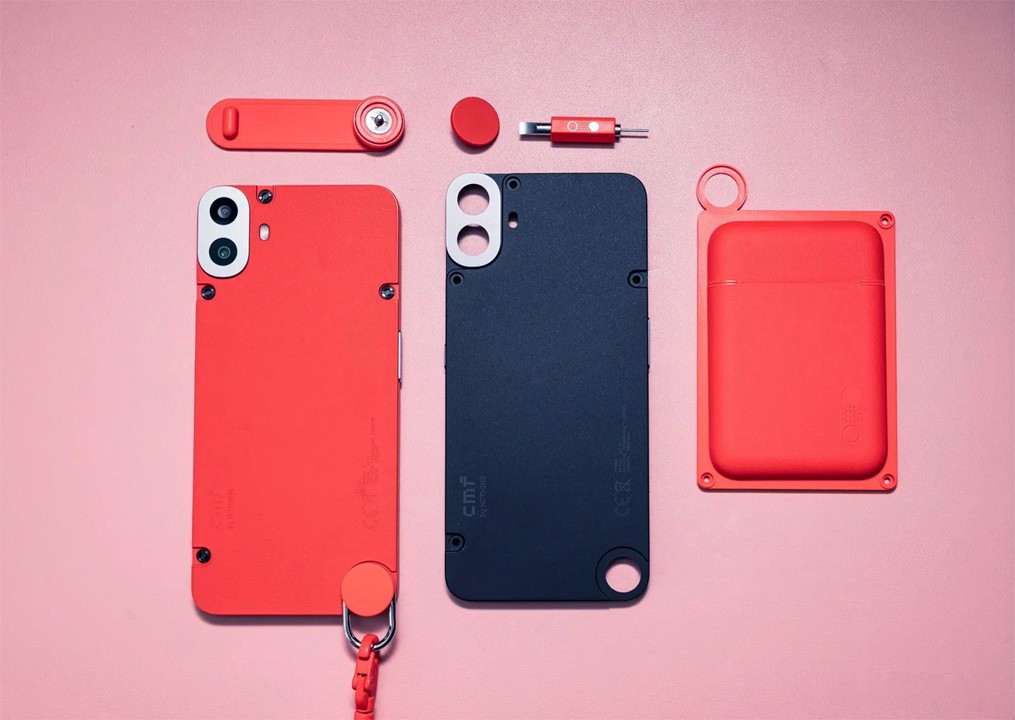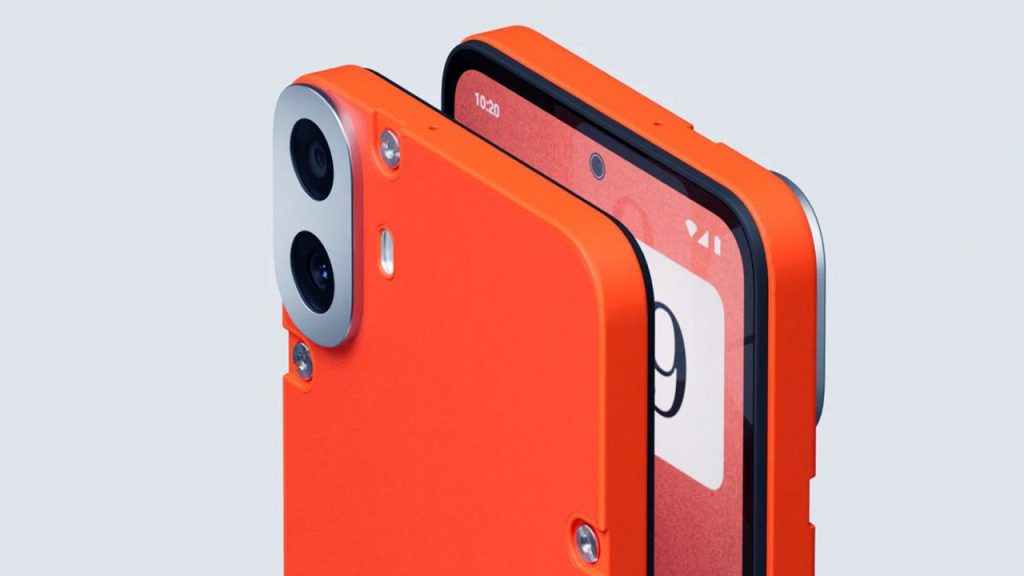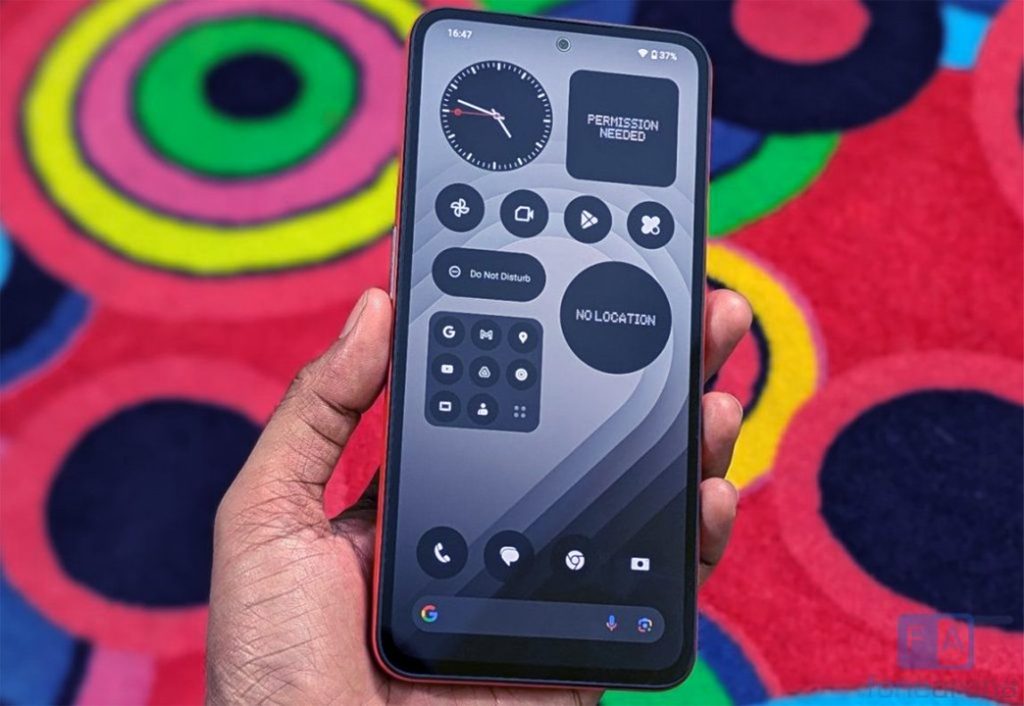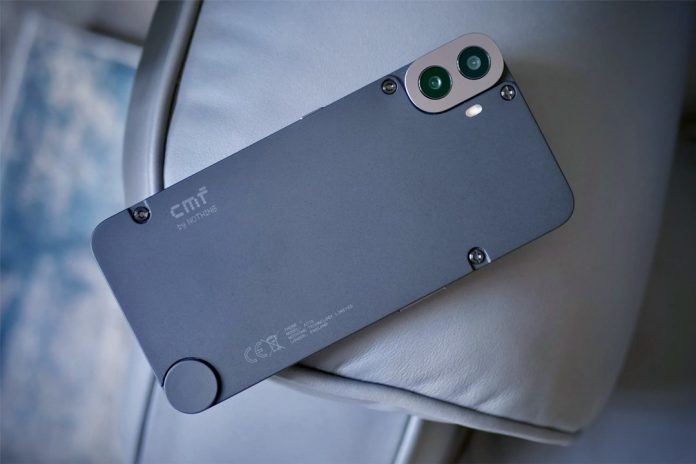True cheap phones are frequently extremely bland. Mostly, they are cookie-cutter copy-and-paste projects with no soul, character, or distinguishing qualities. Most manufacturers treat this type of phone as a tick-box exercise, delivering the bare minimum they can get away with and then moving on.
Nothing’s sub-brand CMF (short for Color Material Finish) has entered the Indian smartphone market with its first offering, the CMF Phone 1. The handset is aimed at budget-conscious buyers and, like its parent firm, has a design-first ethos. The CMF Phone 1 has unusual design choices that pique intrigue. Is that what the smartphone has to offer, or is there more to it than meets the eye? To learn more, read this CMF Phone 1 review.
CMF PHONE 1 KEY FEATURE
Nothing is a pretty new brand in and of itself, but their subbrand, CMF, is even more recent and has thus far limited itself to producing smartphone accessories with a distinct style and somewhat affordable rates. It didn’t take long for the company to release its first CMF-branded phone, the appropriately called CMF Phone 1.
Unlike some other manufacturers’ subbrands, Nothing’s current marketing approach views CMF as a different range within the larger Nothing ecosystem, rather than a wholly isolated company.
As a product, the CMF Phone 1 shares many similarities with the Nothing Phone (2a), but it also has its own distinct style and design language that is authentic to the CMF brand.
Nothing regards design and quality as the CMF Phone 1’s main cornerstones. The phone is presumably intended to deliver on both fronts while also “doubling down on core user needs,” which is a fancy way of stating that it will be fairly modest in terms of hardware, but with very few feature concessions where it counts.
The CMF Phone 1 does have some impressive features, such as a 6.67-inch 120Hz Super AMOLED display and a 50MP main camera with a “flagship-grade” Sony sensor. The MediaTek Dimensity 7300 5G processor is also no slouch, even if it isn’t designed to top performance charts; it is aimed toward power economy and longer battery life.
Nothing OS 2.6, Nothing’s own distinct take on Android, packed with loads of personality and a surprising number of added features, ties the entire experience together.
In terms of supplementary functionality, the CMF Phone 1 delivers quite a bit, thanks to its innovative modular construction. The phone’s entire back side is removable and interchangeable, allowing users to customize it. There is also an “Accessory Point” on the back of the phone. It is designed to attach functional accessories to the CMF Phone 1, such as a fold-out stand, card holder, or lanyard. We will not lie: that sounds pleasantly refreshing.
Pros
- Interesting design
- Customisability
- Impressive performance
- Clean UI
Cons
- Sub-par IP rating
- Charging speeds could have been better
CMF PHONE 1 UNBOXING
The CMF Phone 1 ships in a two-piece cardboard carton. The front is embellished with blown-up design elements from the phone itself, and specific details, like the removable screws on the back, stand out. More about that in the design part. The phone is safely fastened in a cradle inside the box.

CMF, like Nothing, does not appear to be particularly fond of accessories. The CMF Phone 1 comes with a single USB Type-C to Type-C cable that isn’t exceptionally long or bulky. It appears to be a basic passive cable. The only other in-box item is a SIM ejection tool in CMF colors. The box is empty, with no charger or other items.
CAMERA
The CMF Phone 1’s camera setup feels like a return to the past. Consider some of the earliest phones to use dual camera systems, such as the HTC One M8 from 2014. Instead of an ultrawide or even a zoom, this phone has a secondary ‘depth’ sensor beside the primary lens.
We’ve also seen these “depth sensors” on other phones. They were typically introduced as the second or third camera on more cheap devices, allowing manufacturers to boast about having a multi-camera system.
The idea behind this second sensor is that it can detect depth between objects, allowing for an effective ‘Portrait’ mode in which your subject is in focus with a blurred background. The only problem is that, as we’ve seen with so many current phones, having a depth sensor is no longer required to achieve this effect.

You can modify the blur strength using a slider on the portrait mode screen, and the effect can be quite nice. It’s smooth, with no odd artifacts or swirls, but even with the extra lens, edge recognition is a little off.
I even noticed that it became confusing when dealing with things with defined, smooth edges. One specific example was a little Lego mini figure with a mask; it would become confused with the eyes behind the mask, sometimes blurring one but not the other, and unable to determine if the light reflection on the top of the head was part of the head or something in the background.
Images taken at night frequently appear over-sharpened, very contrasty, and with a white balance that appears to be attempting to transform the night environment into day by making warm-to-the-eye surfaces and objects appear chilly and blue.
Daytime video capturing is also satisfactory. It’s still a little saturated and contrasty, but it’s suitable for sharing with friends and on social media. It is worth mentioning, however, that the phone can only capture 4K at 30fps and 1080p at 60fps.
DESIGN AND SCREEN
The CMF Phone 1 has numerous intriguing characteristics. However, the initial impression is of the same conventional look and feel. When you flip it, however, things look to be more “industrial”. The device has screws in each corner and a ‘Accessory Point’ at the bottom as part of its athletic design.
Here’s when things become interesting. The firm provides the ability to swap the rear panels. The entire process is quite simple, but remember to remove the SIM tray first before removing the rear panel. However, the swappable panels cost Rs 1,499 each. The black and light green have a matte surface, while the orange and blue have a vegan leather finish.

The CMF Phone 1’s Accessory Point also allows you to simply attach a lanyard or a kickstand, both of which cost Rs 799. Then there’s a case that holds up to three cards and accepts contactless payments. The whole experience is satisfactory, albeit there is always a risk of missing screws.
That being said, once you’ve completed the entire DIY session, you’ll enjoy using your phone. Despite being made entirely of plastic, the CMF Phone 1 does not feel cheap in any aspect.
CMF Phone 1 has a flexible display at this pricing point. The smartphone features an adjustable 120Hz screen refresh rate and a 240Hz touch sampling rate, resulting in a buttery smooth scrolling experience. The smartphone can only run at 120Hz or 60Hz; there are no intermediate modes, such as the popular 90Hz.
In terms of performance, it will undoubtedly impress you. The screen has brilliant and sharp colours, making it an excellent phone for content viewing.
The device has two colour modes: Alive and Standard. The former is preferable in my opinion because it produces better colour output while gaming or watching films.
The phone also has up to 2,000nits of peak brightness, allowing you to watch an Instagram video outside without squinting. There is also an always-on display mode, which is hidden in the Glance display setting. It’s fairly basic, merely showing the time, date, and weather.
HOW’S THE PERFORMANCE?
In a few instances, inexpensive phones fall short of more expensive, high-end smartphones, particularly in terms of overall performance and battery life.
Because, unlike the most recent Snapdragon 8 Gen 3-powered devices, the CMF Phone 1’s MediaTek Dimensity 7300 processor and 8GB RAM cannot destroy even the most demanding games without significantly draining the battery. It has lots of storage: 128GB or 256GB, with the option to expand with a MicroSD card up to 2TB if desired.
It’s all about managing expectations with these easily available technologies, however. It will still run almost any game you want to play, just not at severe or high graphics settings. It’s quite adequate for casual gaming. I was able to play a solid 30 minutes of Mario Karts Tour in one sitting, and the phone did not grow warm, stuttery, or slow, and the image did not lose any clarity. When you play Call of Duty or Genshin on the highest setting, it will become slow and laggy.
Buy it if...
- Unique, eye-catching design with a focus on customization, repairability, and sustainability.
- Bright OLED with HDR and a 120Hz refresh rate.
- Excellent battery life.
- Excellent chipset performance for the class.
- Excellent camera image quality.
Don't buy it if…
- There was no charger in the box.
- There is very little IP52 ingress protection.
- A single loudspeaker is not particularly spectacular.
- No NFC.
- There is no camera OIS.
FULL SPECIFICATION
Network | Technology | GSM / HSPA / LTE / 5G |
Launch | Announced | 2024, July 08 |
Status | Available. Released 2024, July 09 | |
Body | Dimensions | 164 x 77 x 8.2 mm (6.46 x 3.03 x 0.32 in) |
Weight | 197 g or 202 g (6.95 oz) | |
Build | Glass front, plastic back or silicone polymer back (eco leather) | |
SIM | Dual SIM (Nano-SIM, dual stand-by) | |
User-replaceable back cover Dust and splash resistant | ||
Display | Type | AMOLED, 120Hz, 500 nits (typ), 2000 nits (peak) |
Size | 6.67 inches, 107.4 cm2 (~85.1% screen-to-body ratio) | |
Resolution | 1080 x 2400 pixels, 20:9 ratio (~395 ppi density) | |
Always-on display | ||
Platform | OS | Android 14, up to 2 major Android upgrades |
Chipset | Mediatek Dimensity 7300 (4 nm) | |
CPU | Octa-core (4×2.5 GHz Cortex-A78 & 4×2.0 GHz Cortex-A55) | |
GPU | Mali-G615 MC2 | |
Memory | Card slot | microSDXC |
Internal | 128GB 6GB RAM, 128GB 8GB RAM, 256GB 8GB RAM | |
Main Camera | Dual | 50 MP, f/1.8, (wide), PDAF 2 MP, f/2.4, (depth) |
Features | LED flash, panorama, HDR | |
Video | 4K@30fps, 1080p@30/60fps, gyro-EIS | |
Selfie camera | Single | 16 MP, f/2.0, (wide) |
Video | 1080p@30fps | |
Sound | Loudspeaker | Yes |
3.5mm jack | No | |
Comms | WLAN | Wi-Fi 802.11 a/b/g/n/ac/6, dual-band |
Bluetooth | 5.3, A2DP, BLE | |
Positioning | GPS, GALILEO, GLONASS, BDS, QZSS | |
NFC | No | |
Radio | No | |
USB | USB Type-C | |
Features | Sensors | Fingerprint (under display, optical), accelerometer, proximity, compass |
Battery | Type | 5000 mAh, non-removable |
Charging | 33W wired 5W reverse wired | |
Misc | Colors | Black, Orange, Light Green |


